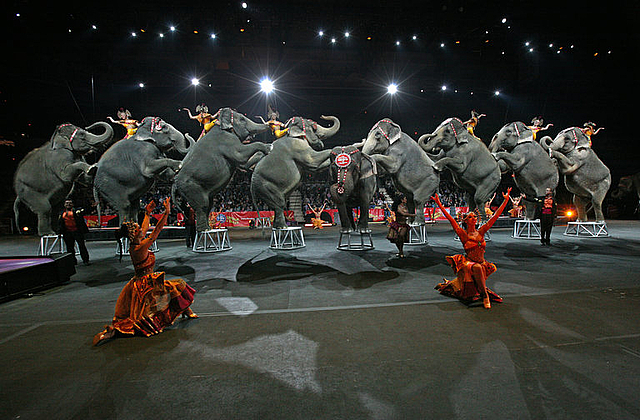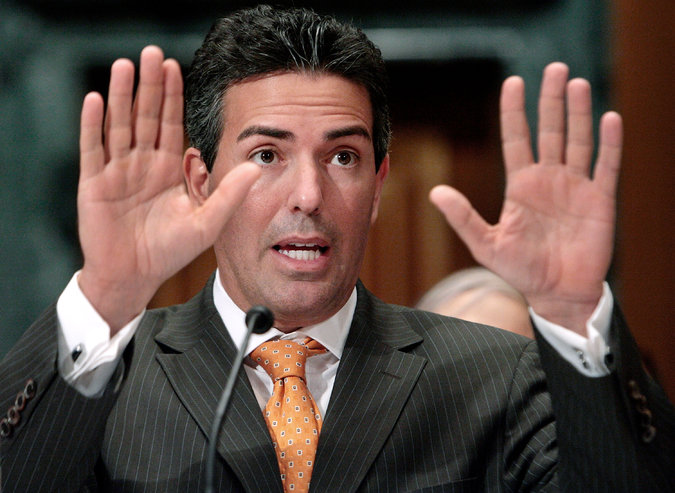
The New York Times

IN 1903, New Yorkers executed an elephant on Coney Island, effectively torturing her to death.
Accounts vary a bit, but it seems Topsy was a circus elephant who had been abused for years and then killed a man who had burned her on the trunk with a cigar. After her owners had no more use for her, Topsy was fed cyanide, electrocuted and then strangled with a winch. The Edison motion picture company made a film of it, “Electrocuting an Elephant.”
So maybe there is an arc of moral progress. After many allegations of mistreatment of animals, Ringling Brothers this month retired its circus elephants, sending them off to a life of leisure in Florida. SeaWorld said this spring that it would stop breeding orcas and would invest millions of dollars in rescuing and rehabilitating marine animals.
Meanwhile, Walmart responded to concerns for animal welfare by saying last month that it would shift toward cage-free eggs, following similar announcements by Costco, Denny’s, Wendy’s, Safeway, Starbucks and McDonald’s in the U.S. and Canada.
This is a humane revolution, and Wayne Pacelle, president of the Humane Society of the United States, has been at the forefront of it. Alternately bullying companies to do better and cooperating with those that do so, he outlines his approach in an excellent new book, “The Humane Economy.” These corporate changes have vast impact: Walmart or McDonald’s shapes the living conditions of more animals in a day than an animal shelter does in a decade.
There is also a lesson, I think, for many other causes, from the environment to women’s empowerment to global health: The best way for nonprofits to get large-scale results is sometimes to work with corporations to change behavior and supply lines - while whacking them when they resist.
The Environmental Defense Fund and Conservation International do something similar in the environmental space, CARE works with corporations to fight global poverty, and the Human Rights Campaign partners with companies on L.G.B.T. issues.
Critics sometimes see this as moral compromise, negotiating with evil rather than defeating it; I see it as pragmatism. Likewise, Pacelle has been a vegan for 31 years but cooperates with fast-food companies to improve conditions in which animals are raised for meat.

Humane Society President and CEO Wayne Pacelle testifies before the Senate about inspection systems at meat processing plants in 2008. CreditChip Somodevilla/Getty Images
“Animals jammed into cages and crates cannot wait for the world to go vegan,” Pacelle told me. “I’m quite sure they want out of this unyielding life of privation right now, and once that question is settled, then sensible people can debate whether they should be raised for the plate at all.”
At a time when the world is a mess, Pacelle outlines a hopeful vision. The public has always had some impact with charitable donations, and there have always been occasional boycotts, but sometimes its greatest influence comes by leveraging daily consumer purchasing power.
“As the humane economy asserts its own power, its own logic and its essential decency, an older order is passing away,” Pacelle writes in his book. “By every measure, life will be better when human satisfaction and need are no longer built upon the foundation of animal cruelty. Indefensible practices will no longer need defending.”
It’s true that atrocities continue and that the slaughter of animals like elephants persists. There were some 130,000 elephants in Sudan 25 years ago, while now there may be only 5,000 in Sudan and the country that broke off from it, South Sudan, Pacelle writes.
Yet there is a business model for keeping grand animals like elephants alive.One analysis suggests that a dead elephant’s tusks are worth $21,000, while the tourism value of a single living elephant over its lifetime is $1.6 million. Countries follow their enlightened self-interest when they protect elephants, just as McDonald’s pursues its self-interest when it shifts toward cage-free eggs.
It’s also astonishing how sensitive companies are becoming to public opinion about animals. After Cecil the lion was shot dead in Zimbabwe, animal protection groups lobbied airlines to ban the shipment of such trophies. Delta, American, United, Air Canada and other companies promptly obliged.
In the pet store business, two chains - PetSmart and Petco - have prospered without accepting the industry’s norm of selling dogs and cats from puppy mills and other mass breeders. Instead, since the 1990s they have made space available to rescue groups offering animals for adoption. PetSmart and Petco don’t make money off these adoptions, but they win customer loyalty forever, and they have helped transfer 11 million dogs and cats to new homes.
I believe that mistreatment of animals, particularly in agriculture, remains a moral blind spot for us humans, yet it’s heartening to see the consumer-driven revolution that is underway.